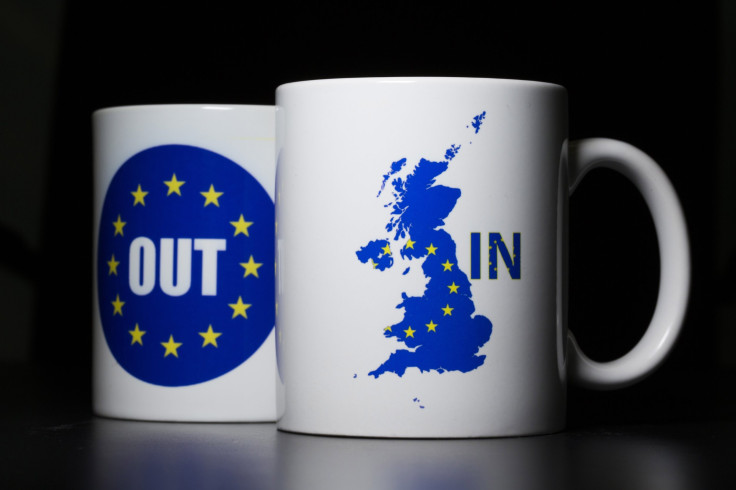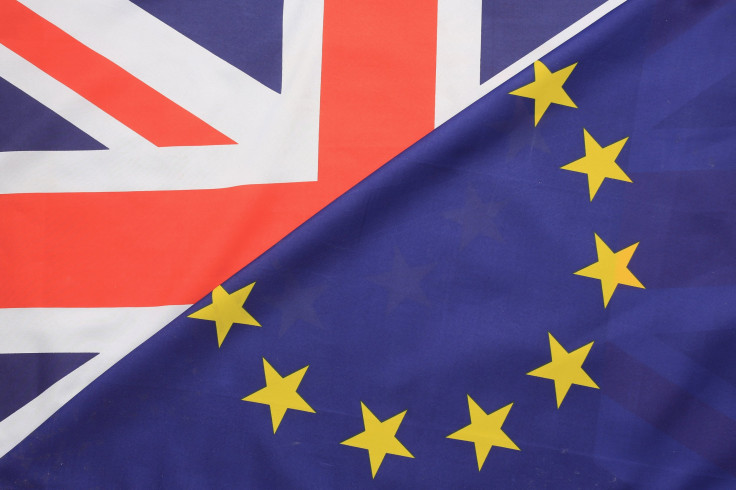Brexit Referendum 2016: Amid Tight Polls, Here’s Who Wants To Stay, Who Wants To Leave Among Top Celebs, Politicians

Fiery debate over the U.K. leaving the European Union has breached the boundaries of the British Isles, drawing actors, statesmen, scientists and business leaders from throughout the world into the fray. Celebrities and ordinary citizens alike have increasingly depicted the June 23 referendum vote as a battle for the soul of Europe, asking whether the union of nation-states will grow ever closer or more fragmented.
While U.K. voters might not decide their vote based on the opinion of a single politician or business tycoon, recent polling has painted a picture of a divided nation, with the results of the so-called Brexit vote set to be extremely tight. The margin between the two camps has steadily narrowed since September. As of June 5, 45 percent of those surveyed supporting the “Stay” side and 43 percent supporting “Leave,” according to the Financial Times polling tracker, which takes the average of recently available survey data. The remaining 12 percent of undecided voters will likely play an important role in the referendum by effectively swaying the race one way or the other.
Prime Minister David Cameron promised the British people he would hold a referendum on EU membership when he campaigned to keep his job in the general election in May 2015. The Brits have long been somewhat reluctant members of the 28-country bloc, frequently opting out of EU-wide initiatives such as a quota on accepting refugees. Residents throughout member states have increasingly criticized the EU throughout the past several years, as multiple crises – including an influx of refugees, the threat of domestic terror and ongoing recovery from a continentwide economic downturn – have continued to plague Europe.
Cameron renegotiated several terms of the U.K.’s membership in the EU in February, promising that the new terms would allow for more economic and political sovereignty, as well as better control over immigration in particular. The prime minister was successful in convincing the European Commission to remove the U.K. from the European clause that seeks to create an "ever closer union," protecting the nation from further integration, according to Cameron. He failed to secure the right to deny EU migrants benefits in the U.K., though he did get an emergency brake system where member states can apply for a temporary stay of benefits if they become too costly for the country. Immigration has been a sticking point for many Leave campaigners, as some several million EU citizens who reside in the U.K. qualify for workers benefits paid for by British taxpayers.
Defenders of British membership in the EU, including Cameron and his political allies, cite the U.K.’s access to the European single market, as well as their country’s ability to collaborate on threats facing the continent, such as terrorism, as key reasons for staying in the economic and political bloc. Cameron has been joined by several key leaders from financial superpowers like Goldman Sachs and Barclays that have warned a Brexit would spell disaster for free exchange of capital and labor both within Europe and across the Atlantic.
Trade with the EU accounts for a whopping 15 percent of British GDP. In the event of a Brexit, the country could stand to lose 1.1 to 3.3 percent of its total GDP, equating to 50 billion pounds, or approximately $70 billion, according to recent analysis from the London School of Economics.

Members of creative sectors in the arts and sciences have overwhelmingly supported the U.K. staying in the EU. A list of nearly 300 actors, including Keira Knightley, Benedict Cumberbatch, Jude Law and Helena Bonham Carter, signed an open letter earlier this year saying that the borderless nature of modern Europe has allowed for them to grow and collaborate with directors, screenwriters and other members of their industry for decades.
“From the Bard to Bowie, British creativity inspires and influences the rest of the world. We believe that being part of the EU bolsters Britain’s leading role on the world stage,” read an excerpt from the letter. “Let’s not become an outsider shouting from the wings.”
The debate has drawn a line within the prime minister’s Conservative Party, with many members of his center-right group, including former London Mayor Boris Johnson, throwing their weight behind the “Leave” campaign. Johnson and other “Leave” campaigners are adamant that given London’s status as an international financial hub, the U.K. would continue to grow and thrive with or without the EU. Pro-Brexit advocates also argue that the U.K. would be able to more easily protect its borders outside of the EU, allowing for better security in the face of a burgeoning terror threat.
Johnson is joined by business leaders such as Michael Geoghegan, a former chief executive of British financial services company HSBC, and Joe Foster, co-founder of footwear giant Reebok. They bemoan a lack of British competitiveness in worldwide markets, blaming expensive membership fees and cheap imported labor for stifling U.K. growth.
Several top figures in the nation have looked to stay out of the debate, urging each British voter to decide for him or herself. Queen Elizabeth II and the entire royal family have been notably tight-lipped throughout the Brexit campaign. The monarch has often sought to remain neutral, and a political quagmire erupted after a local tabloid misreported that the queen had supported a Brexit earlier this year. The queen has insisted through her spokespeople that the referendum is a moment for the British to decide for themselves, as has the prime minister.
"It is time for the British people to have their say,” said Cameron. “It is time to settle this European question in British politics.”
© Copyright IBTimes 2025. All rights reserved.






















